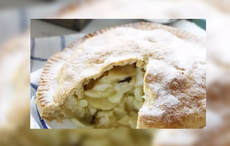Researchers from the University of Ulster conducted a study in an Irish pub to determine how hangovers from alcohol impact memory and alertness. The results... may not surprise you.
What did a research team from the University of Ulster do when they wanted to test the impact of hangovers from alcohol on the adult brain? They went straight to a pub in Ireland.
The study, led by Psychology PhD candidate Lydia Devenney and published in Addictive Behaviors, sought to measure how alcohol impairs the mood, cognition, and alertness of adult drinkers.
One of the biggest issues with some research studies is that they are not faithfully representative of the larger population: participants are frequently college students who have been given incentives like money or class credit to participate.
Read More: Ireland aims to curb excessive drinking with landmark new bill
So Devenney and her team decided to take a naturalistic approach and went right to the source. They selected a pub in a town in Ireland which is not named in the study for the sake of anonymity. However, the study does mention that the town was listed as having a population of 6,839 according to the 2011 census, which the Daily Mail pointed out is the exact same population as Buncrana in County Donegal.
In the hours before the pub opened, they recruited 45 participants who volunteered to participate in a series of tests on one day after a night of drinking and on another day when they would not be hungover; a control day.
The participants included 25 men and 20 women ranging in ages from 19 to 60 (the drinking age in Ireland is 18).
On the night before the hangover test day participants consumed an average of 15.4 UK units of alcohol - over the maximum of 14 units total the UK National Health Service advises for an entire week.
Returning the next day in a hungover state, they participated in six tests designed to measure cognition, spatial reasoning, retention and speed of reaction. They also rated their moods using a scale. Within 10 days after the hangover tests, they returned on a sober day to complete the tests again.
Read More: Hangover leaves Irishman with hiccups for 14 months
The results will likely not shock anyone who has ever experienced a hangover.
"The present study demonstrated significant performance impairment during alcohol hangover on Stroop performance, selective attention, intra- and extra dimensional set shifting, spatial working memory, free recall, and choice reaction time tasks. Reaction times were significantly slower during alcohol hangover and the number of errors was significantly increased, especially in tasks with high difficulty levels."
What's more, the results were in line with those found in earlier studies conducted with college students as participants:
"Taken together, the effects on cognitive performance during the hangover state of the current adult working sample were more or less comparable to those observed in student samples. Thus, the impairing effects of alcohol hangover on mood and cognition seen in student samples are equally present in older non-student samples."
Read More: JFK's secret service agents may have been too hungover to react in Dallas says author
Deveney noted that the general findings of how intensely being hungover impacts cognition and mood are a cause for concern given that most jobs which depend on human reliability, such as oil and gas rigs, forbid alcohol consumption during working hours but have no rules about coming to work hungover.




Comments